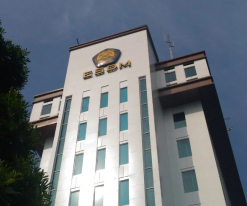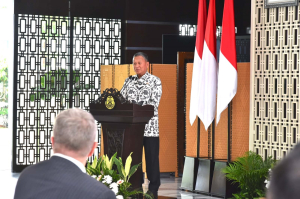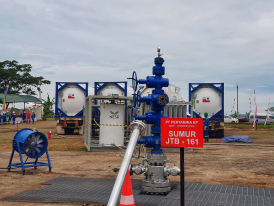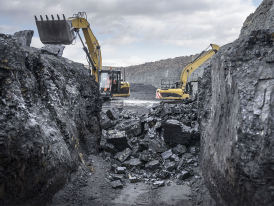New mining law “threatens academic independence, prolongs fossil fuel dominance”
The recently approved revision of the Mining Law by the House of Representatives (DPR) has sparked concerns among academics and environmental advocates, alleging that it could compromise academic independence, force universities to align with mining industry interests, and slow down the country’s energy transition.
Sartika Nur Shalati, Policy Strategist at green energy promoter CERAH, said the revised law mandates that universities receive financial benefits from mining operations conducted by state-owned enterprises (SOEs), region-owned enterprises (ROEs), and private companies under cooperation agreements.
"Universities, which should uphold objectivity and scientific integrity, risk being silenced and forced to support policies that benefit mining companies, even if they contradict sustainability principles and social responsibility," Sartika said in a statement on Friday, February 21, 2025.
Under Articles 51A and 60A of the law, the government is authorized to prioritize mining concessions (WIUP) for universities through partnerships with SOEs, ROEs, or private enterprises. Although universities cannot directly hold mining licenses, Article 3 stipulates that a portion of the profits from mining operations will be allocated to universities.
Critics argue that this move is particularly alarming in light of budget cuts to the education sector, which have increased universities' dependence on external funding. Sartika warned that this opens the door for mining companies to exert influence over academic institutions.
"Mining corporations could become major donors, easily steering universities to support the fossil fuel industry," she added.
Threats to research, academic freedom
Sartika noted that the dominance of state and private coal companies could hinder Indonesia’s transition to renewable energy.
"With SOEs, ROEs, and private enterprises primarily focus on coal, universities will struggle to promote research on renewable energy technologies due to limited resources and potential conflicts of interest with industry partners," she cited.
Herdiansyah Hamzah, a lecturer at Samarinda-based Mulawarman University and a member of the Indonesia Caucus for Academic Freedom (KIKA), identified two key motivations behind the revisions.
"First, the new provisions serve as a form of bribery, offering mining concessions in exchange for universities' endorsement of extractive industries. This is a strategy by the government and the parliament to suppress academic dissent," he said.
"Second, universities are being turned into mouthpieces for the mining industry, legitimizing harmful extractive practices under the guise of academic research," he added.
Unregulated mining expansion
Meanwhile, Aryanto Nugroho, National Coordinator of Publish What You Pay (PWYP) Indonesia, warned that the new mining law could lead to uncontrolled mining expansion, similar to what happened a decade ago.
He cited that the law now grants priority mining concessions (WIUP and WIUPK) to cooperatives and small businesses, raising concerns about lax environmental and financial oversight.
"The government and Parliament seem to have forgotten the lessons from the past decade, when thousands of mining permits failed to meet financial obligations such as taxes, royalties, and land rent. Many also neglected environmental requirements, including Environmental Impact Assessments (AMDAL) and post-mining reclamation guarantees," Aryanto said.
He also highlighted ongoing weaknesses in regulatory enforcement, noting that the establishment of a Directorate General for Law Enforcement within the Ministry of Energy and Mineral Resources (ESDM) remains unclear.
"There’s a reason why the 2009 Mining Law required mining concessions to go through an auction process − because technical, environmental, and financial aspects must be carefully evaluated to minimize risks. The new revisions ignore these safeguards," Aryanto warned.
Tag
Already have an account? Sign In
-
Start reading
Freemium
-
Monthly Subscription
30% OFF$26.03
$37.19/MonthCancel anytime
This offer is open to all new subscribers!
Subscribe now -
Yearly Subscription
33% OFF$228.13
$340.5/YearCancel anytime
This offer is open to all new subscribers!
Subscribe now






